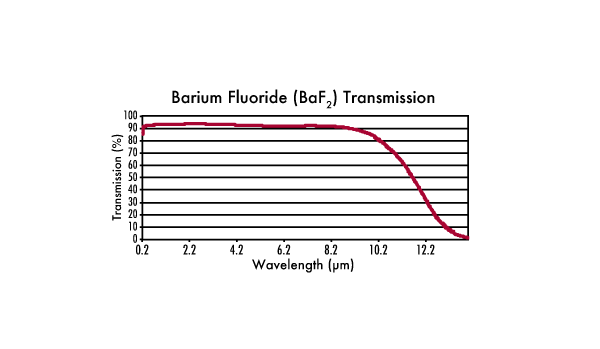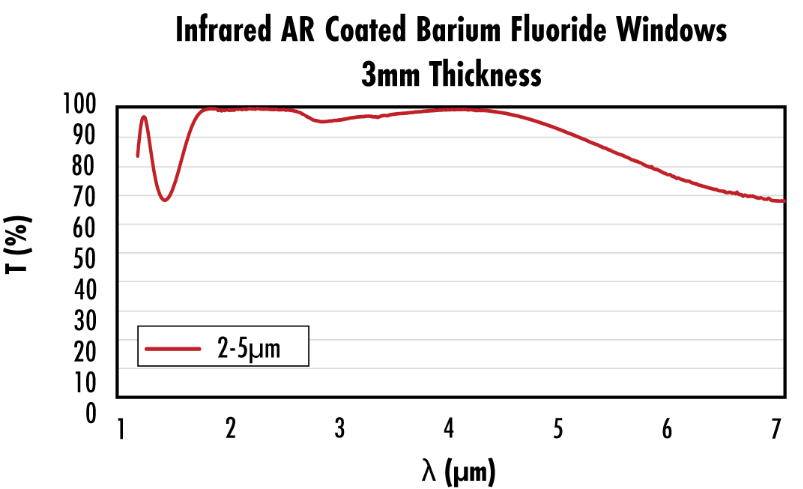
 TECHSPEC® components are designed, specified, or manufactured by Edmund Optics. Learn More
TECHSPEC® components are designed, specified, or manufactured by Edmund Optics. Learn More
TECHSPEC® Barium Fluoride (BaF2) Windows can be used in a variety of applications, such as infrared spectroscopy, due to their wide broadband transmission that extends from the deep ultraviolet to the long-wave infrared. Barium fluoride’s low index of refraction of 1.48 provides high transmission without the need for anti-reflection coatings. Barium fluoride windows can be used up to 800°C in a dry environment, but prolonged exposure to moisture can degrade transmission in the ultraviolet range. While barium fluoride windows are less resistant to water than calcium fluoride, BaF2 windows are the most resistant optical fluoride to high-energy radiation, but feature lower UV transmittance. BaF2 has a Knoop hardness of 82.
Note: These optical windows are very sensitive to thermal shock.
Barium fluoride is a fast scintillator and can be used to detect X-rays, gamma rays, or other high energy particles such as 511 keV gamma photons in Positron Emission Tomography (PET). BaF2 can also be used to detect high-energy neutrons and separate them from simultaneously occurring gamma photons using pulse shape discrimination techniques.


or view regional numbers
QUOTE TOOL
enter stock numbers to begin
Copyright 2023 | Edmund Optics, Ltd Unit 1, Opus Avenue, Nether Poppleton, York, YO26 6BL, UK
California Consumer Privacy Act (CCPA): Do Not Sell or Share My Personal Information
California Transparency in Supply Chains Act